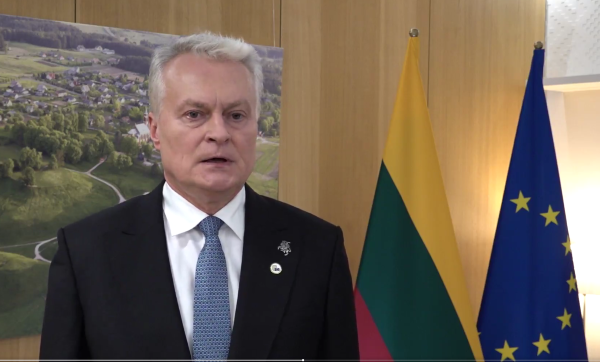On Wednesday, Lithuania announced it would maintain the closure of border crossings with Belarus for one month. This measure follows incidents involving balloons used to smuggle cigarettes, which resulted in significant disruptions at Vilnius Airport. While the crossings will remain closed, certain exemptions will apply.
The two border crossings with Belarus were closed last week after sightings of balloons led to the suspension of air traffic at Vilnius Airport on the preceding Friday, Saturday, and Sunday. Lithuanian officials have interpreted the balloon incidents as a deliberate attempt at disruption by Belarus, an ally of Russia. As a member of both NATO and the European Union, Lithuania is situated on the eastern flank of the Western alliance and shares borders with both Belarus and Russia’s Kaliningrad exclave.
During a Cabinet meeting on Wednesday, Lithuanian authorities decreed that the Šalčininkai crossing would be entirely closed. In contrast, access through the Medininkai crossing near Vilnius would be restricted for the next month. However, provisions have been made for certain Lithuanian and EU citizens to cross through Medininkai, as well as for Russian nationals holding transit documents to facilitate their travel to Kaliningrad.
On 28 October, during a call with NATO Secretary General Mark Rutte, Lithuanian President Gitanas Nausėda discussed recent incidents involving Belarusian smuggling balloons.
“The (in)action of the Belarusian regime constitutes a hybrid attack against Lithuania. It endangers civilian aviation safety & disrupts Vilnius International Airport,” President Nausėda wrote on X after the call.
Interior Minister Vladislav Kondratovic emphasised that these actions are intended to convey a clear message to Belarus about its lack of initiative to address the situation.
In response, Belarusian President Alexander Lukashenko criticised Lithuania’s decision, describing it as an unwarranted act and part of a “hybrid war” against Belarus.
While these balloon incidents have unfolded, Europe remains vigilant following a rise in drone intrusions into NATO airspace last month. Some European officials view these incidents as evidence of Moscow testing NATO’s preparedness, raising questions about the alliance’s readiness to respond to potential threats.
Additionally, Belgian Defence Minister Theo Francken also reported that multiple drones were observed overnight Tuesday into Wednesday above a military base in Marche-en-Famenne, in the eastern part of the country. He indicated that an investigation is underway, although further details have not been disclosed.
This article used information from The Associated Press

